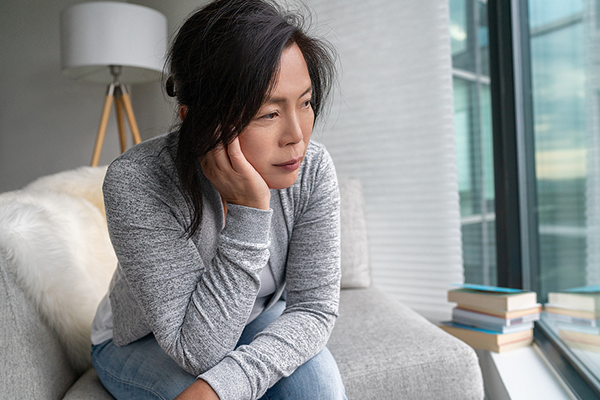No one ever feels ashamed for going to the doctor to treat a cold.
So why is it that many of us feel that way when we need the help of a mental health professional?
“No one would think twice about getting treatment for a broken arm or another physical ailment,” said Dr. Kimberly Loomer, an associate professor of psychiatry and health behavior at the Medical College of Georgia at Augusta University. “But there is some kind of stigma in this country for mental ailments. It’s almost like we believe the head is unattached to the rest of the body.”
The stigma around mental illness can result in people refusing to get the help they need. Unfortunately, it can also lead to a knee-jerk reaction of avoidance by loved ones, friends and co-workers, which only makes matters worse.
Overcoming mental health stigma is challenging, but it’s one worth facing.
If you think: I should be able to control this condition without help.
Consider this: Lifestyle changes can make a difference, both for physical and mental health. But if you’ve taken these steps and are still struggling, remember that you wouldn’t hesitate to see a doctor if something were physically wrong with you, especially if it were affecting your daily life. Your mental health deserves the same attention and care.
If you think: I don’t want to be labeled.
Consider this: Be careful not to label yourself, and make sure to correct others who do. Instead of saying, “I’m bipolar” or “I’m schizophrenic,” say, “I have bipolar disorder” or “I have schizophrenia.” It’s subtle, but it makes a difference.
If you think: I’m all alone in this.
Consider this: Do you need to educate your family and friends? Look for local and national programs that offer support and resources. The National Alliance on Mental Illness has a local office and a national website, and Veterans Administration hospitals also have services—and both of these are free. These organizations may also be able to suggest local support groups if your support network isn’t as strong as you’d like it to be.
On the flip side, if you do have supportive family and friends, welcome them. If you’re nervous about going to an appointment alone, bring someone along. Accept help instead of feeling like “they’re just being nice” or “they don’t really mean it.”
If you think: I don’t know where to go.
Consider this: Turn to Google. Online reviews aren’t always reliable, but they’ll give you a snapshot of what a practice offers. Then just start calling. It may take a few phone calls, so stay focused. Once you have an appointment, you can expect to meet with an intake counselor who will review how therapy can be beneficial to you and recommend the right person in that practice.
If you think: I don’t have time.
Consider this: Most appointments only take about 50 minutes and happen once a week. It may require just a little juggling to carve out that time, but could you go on your lunch break? Could you eat lunch at your desk and then leave work a little early? Also make sure to ask if the therapist offers after-work or weekend hours.
If you think: I’m just not comfortable talking about myself.
Consider this: Give it a few tries. You may surprise yourself at how much better you feel sharing what’s going on with a stranger whose only job is to listen to you. If you still don’t feel comfortable, could it be that a different therapist might work better for you? The goal of any practice is to get you help, so it’s definitely OK to ask about making a switch.
If you think: I don’t want anyone to know I’m seeing a therapist.
Consider this: Then they don’t have to. All patient-provider information is totally confidential.
If you think: It’s just too expensive.
Consider this: Check with your insurance. Most plans offer some type of coverage for mental health visits.
Still feeling nervous about getting help for a mental issue? Then start by going to a safe place: your doctor’s office.
“A great first step is for folks to share what’s going on with their family physician, assuming they have one,” Loomer said. “That person can also make some referrals, as well. The most important thing is for anyone who is suffering to get the help they need, without a stigma holding them back.”





